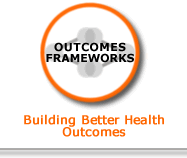National Institute for Health and Clinical Excellence (NICE) Public Health Guidance (PHG) 024. Alcohol-use disorders: preventing the development of hazardous and harmful drinking.
There is evidence for effectiveness of:
SIGN 74 Recommendations:
National Institute for Health and Clinical Excellence (NICE) Public Health Guidance (PHG) 024 Recommendations:
-
Commissioners should ensure their plans include screening and brief interventions for people at risk of an alcohol-related problem (hazardous drinkers) and those whose health is being damaged by alcohol (harmful drinkers). This includes people from disadvantaged groups.
-
Managers of NHS-commissioned services must ensure an appropriately trained nurse or medical consultant, with dedicated time, is available to provide strategic direction, governance structures and clinical supervision to alcohol specialist nurses and care givers.
-
Managers of NHS-commissioned services must ensure community and voluntary sector providers have an appropriately trained professional who can provide strategic direction, governance structures and supervision to those providing screening and brief interventions.
-
Managers of NHS-commissioned services must ensure staff have enough time and resources to carry out screening and brief intervention work effectively. Staff should have access to recognised, evidence-based packs. These should include: a short guide on how to deliver a brief intervention, a validated screening questionnaire, a visual presentation (to compare the person’s drinking levels with the average), practical advice on how to reduce alcohol consumption, a self-help leaflet and possibly a poster for display in waiting rooms.
-
Managers of NHS-commissioned services must ensure staff are trained to provide alcohol screening and structured brief advice. If there is local demand, staff should also be trained to deliver extended brief interventions.
-
Offer a session of structured brief advice on alcohol. If this cannot be offered immediately, offer an appointment as soon as possible thereafter.
-
Use a recognised, evidence-based resource that is based on FRAMES principles (feedback, responsibility, advice, menu, empathy, self-efficacy). It should take 5–15 minutes and should:
-
cover the potential harm caused by their level of drinking and reasons for changing the behaviour, including the health and wellbeing benefits
-
cover the barriers to change
-
outline practical strategies to help reduce alcohol consumption (to address the ‘menu’ component of FRAMES)
-
lead to a set of goals.
-
Where there is an ongoing relationship with the patient or client, routinely monitor their progress in reducing their alcohol consumption to a low-risk level. Where required, offer an additional session of structured brief advice or, if there has been no response, offer an extended brief intervention.
Scottish policy note
In Scotland, a national clinical guideline (SIGN 74) was published in 2003 recommending the delivery of ABIs for harmful and hazardous drinkers in primary care and also highlighting the potential for delivery in A&E and antenatal settings. However limited implementation of SIGN 74 and continuing increases in alcohol related harm in Scotland led the Scottish Government (SG) to set a target for delivery of ABIs (149,449 in the priority settings of primary care, A&E and antenatal care by 2011) supported by a substantial increase in funding for alcohol treatment and support services.
The alcohol policy framework; ‘Changing Scotland's Relationship with Alcohol: A Framework for Action’ (2009) confirmed the governmental support for the ABI delivery programme in both the 3 key priority settings and other areas which provide further opportunity for ABI delivery. A national Delivery Support team has been set up to provide leadership and support to NHS Boards on the delivery of the target and to co-ordinate key support functions. This Team will work to support NHS Boards providing help, advice and guidance as necessary.
To support NHS Boards in achieving the new target for brief interventions the Scottish Government have commissioned NHS Health Scotland to develop and coordinate a 3 year national training programme to ensure that frontline staff across the country are competent and confident in the delivery of brief interventions. Thereafter they will ensure that training on brief interventions is recognised as a core aspect of workforce development in NHS Scotland.
References:
Scottish Intercollegiate Guidelines Network. 2004. The management of harmful drinking and alcohol dependence in primary care: a national clinical guideline: Updated. Edinburgh: SIGN.
Ludbrook, A. (2004) Effective and cost-effective measures to reduce alcohol misuse in Scotland. An Update. Edinburgh: Scottish Executive.
Mulvihill, C. Taylor, L. Waller, S. with Naidoo B. Thom, B. (2005) Prevention and reduction of alcohol misuse: Evidence briefing. Second Edition. London: Health Development Agency.
Raistrick, D. Heather, N. Godfrey, C. (2006) Review of the effectiveness of treatment for alcohol problems. National Treatment Agency.
WHO (2009) Evidence for the effectiveness and cost–effectiveness of interventions to reduce alcohol-related harm. World Health Organisation: Europe.
The University of Sheffield, School of Health and Related Research (ScHARR, 2009) Screening and Brief Interventions for Prevention and Early Identification of Alcohol Use Disorders in Adults and Young People. National Institute for Health & Clinical Excellence.
Babor, T. Caetano, R. Casswell, S. Edwards, G. Giesbrecht, N. Graham, K. et al. (2010) Alcohol: No Ordinary Commodity. Research and Public Policy. 2nd Edition,Oxford: Oxford University Press
|



